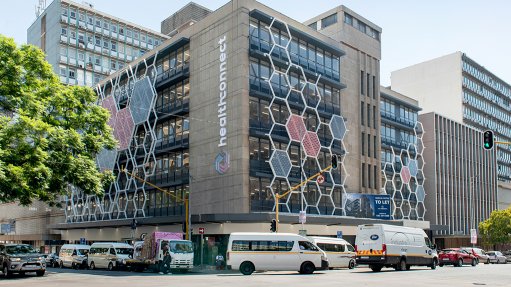
HealthConnect, which is adjacent to the Louis Pasteur Hospital, offering medical suites to doctors and medical specialists, was completed at the end of February, with occupation from March
JSE-listed real estate investment trust Octodec Investments achieved income growth of 3.1% for the six months ended February 29, largely driven by higher rentals in its residential portfolio.
Rental income for the period was just over R1-billion, compared with R974.2-million in the first half of the 2023 financial year.
Octodec says the higher income was achieved against a challenging backdrop of weak economic growth, record unemployment and higher inflation and interest rates, which strained the South African consumer.
The group expects its strategic focus on implementing value-accretive conversion opportunities to provide benefits with the launch of HealthConnect and the start of the construction work on Yethu City.
Octodec recently approved the conversion of a vacant office building in the Tshwane central business district into residential accommodation.
The development will be known as Yethu City on Sisulu and will offer a smaller and more affordable product relative to Octodec’s traditional residential units, with shared amenities such as living areas, kitchens and bathrooms.
The conversion, which is estimated to cost R44-million at a yield of 13%, is expected to be completed by December, with occupation in January 2025.
Octodec also intends to install solar PV at the development.
HealthConnect, which is adjacent to the Louis Pasteur Hospital, offering medical suites to doctors and medical specialists, was completed at the end of February at a cost of R64-million and a yield of 13.1%, with occupation from March.
The group’s distributable income before tax decreased by 7% from R236.8-million to R220.3-million, primarily owing to higher property and administration expenses across the portfolio.
The Fields in Hatfield, catering predominantly to students, witnessed a resurgence in demand following the increase in National Student Financial Aid Scheme allowances this year, with a decrease in vacancies from 23% to 7% by April.
However, increased vacancies in residential buildings near Lilian Ngoyi street, in Johannesburg, tempered overall performance.
The group’s portfolio of retail shopping centres, meanwhile, continued to perform well.
On a like-for-like basis, rental income increased by 1.7%; however, this growth was impacted on by a small increase in vacancies at Killarney Mall.
MD Jeffrey Wapnick says the group is undertaking measures, including working with tenant Pick n Pay, to mitigate the struggling performance at this mall.
Excluding Killarney Mall, core vacancies remained below 1%.
Octodec’s office portfolio performance was stable, but challenging.
Core vacancies increased slightly, and rental income was impacted by some significant rental reversions in the government space, resulting in a decrease in rental income of 1.4% on a like-for-like basis.
“We are pleased to have still maintained a strong capital and liquidity position and loan-to-value, as well as a solid and diversified funding base which will protect our portfolio and, importantly, allow us to actively undertake more conversion and development opportunities to unlock our value while retaining the strength of our assets,” FD Anabel Vieira says.
“Management’s focus for the second half of the year will be on maintaining the momentum achieved in growing income from the portfolio. The improved occupancy at our residential buildings should continue to impact positively on Octodec’s residential sector performance,” Wapnick informs.
“We continue to implement the value-added measures introduced at some of our properties, as well as ensuring backup power and water to our tenants during outages. The group’s strategic focus remains on the redevelopment and repurposing of other properties to improve occupancy, grow rental income and ultimately, distributable income,” he adds.
Initiatives such as backup power and water are expected to protect the group from loadshedding and water shortages, as well as reduce costs in the long run.